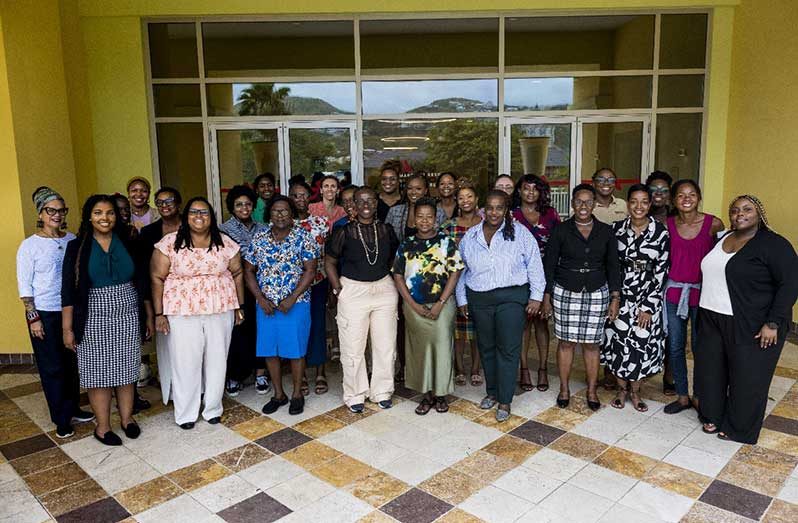THE second annual convening of the Caribbean Feminist Climate Justice (CFCJ) Movement successfully concluded earlier this month in St. Kitts and Nevis, bringing together 22 organisations from 10 Caribbean countries including Guyana – all committed to advancing climate and gender justice in the region – which are beneficiaries of funding from USAID and Global Fund for Women.
Over the past two decades, the number of climate-related disasters has nearly doubled, disproportionately affecting women and girls. They face heightened vulnerability during crises, experiencing more severe immediate impacts and greater challenges in recovery due to entrenched gender inequalities such as gender-based violence, forced migration and increased care responsibilities.

The CFCJ Movement is dedicated to reversing this trend through a bold, inclusive approach that addresses both climate change and gender disparities.
Led by the CFCJ’s Advisory Committee together with the Caribbean Women in Leadership (CIWiL- St. Kitts and Nevis Chapter) as an anchor partner, the convening served as a platform for collaboration, knowledge sharing, and strategic planning on topics such as climate reparations and movement building. Participants discussed innovative approaches for flexible funding systems and reaffirmed their commitment to the feminist climate justice movement in the Caribbean.
During the Opening Session, Honourable Senator Isalean Phillip, Minister with responsibility for Social Development & Gender Affairs; Youth Empowerment Ageing & in St. Kitts and Nevis, congratulated the movement for the progress made over the last year by providing funding to beneficiary organisations that support urgent work in climate action and justice.
The convening underscored the urgent need for comprehensive societal efforts to disrupt systemic inequalities evident in the personal stories of the participants and effectively address the escalating climate crisis. UN Women’s 2023 framework for action on Feminist Climate Justice was a central point of reference, advocating for strong partnerships, increased investments, and accountability.
In the Caribbean, women and girls are at the forefront of climate action. They have been instrumental in raising awareness of the impacts of climate change, lobbying for ambitious strategies by regional governments, and supporting coalitions that influenced changes in global policies seen at COP. Despite their significant contributions, Caribbean women-led organisations remain largely underfunded and under-resourced in climate action initiatives and are often underrepresented in leadership roles.
This growing cohort of Caribbean feminist groups is ensuring women’s leadership in climate action. The movement is working on a feminist approach to climate justice that aims to address the root causes of inequality, provide funding and promote the rights of women, girls, and all historically marginalised people such as people living with disabilities and LGBTQI+ individuals.
The Caribbean Feminist Climate Justice Movement continues to advocate for a region where gender equality is integral to climate resilience and justice.





.jpg)








